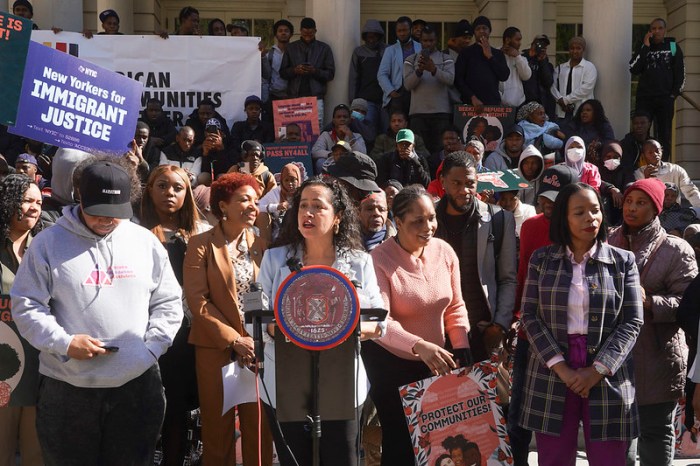By William Lewis
There is no doubt Mayor Michael Bloomberg intends to run for a third term. As we look at the practical aspects of the campaign, however, the question arises as to which political party or parties are willing to designate him as their candidate.
Since he is registered as an independent, he cannot run as a Republican or Democrat without the permission of the city parties’ leadership. There is no chance of his getting the support of the city Democratic Party, especially since he ran against it as a Republican twice before and there are now three potential Democratic candidates for mayor, including U.S. Rep. Anthony Weiner (D−Forest Hills), city Comptroller Bill Thompson and City Councilman Tony Avella (D−Bayside).
In the city Republican Party, there seems to be resentment toward Bloomberg for abandoning the party and changing his registration from Republican to independent last year. In order to run as a Republican candidate, Bloomberg would need the support of at least three of the five Republican county chairmen and their county executive committees. Presently, that is not forthcoming, particularly since there is a Republican mayoral candidate in the field: John Catsimatidis, who owns a city supermarket chain.
Even if by some means Bloomberg was able to run as a Republican, a significant number of Republican rank−and−file activists would not circulate petitions for him, which could cause him problems in getting enough signatures to get on the ballot. He apparently is unwilling to again change his political party affiliation from independent to Republican.
Bloomberg’s problems are in some ways similar to the late Mayor Fiorello LaGuardia, who in 1945 considered running for a fourth term. He had been elected as a Republican three times with various minor party support. At the beginning of 1945, he was surprised to find that all five of the city Republican county chairmen opposed his candidacy and refused to give him their party’s nomination. These county leaders felt LaGuardia had gotten too close to the Roosevelt administration and was neglecting his Republican roots.
Actually, as Bloomberg considered running as an independent for president last year, LaGuardia hoped President Franklin Roosevelt would choose him to be on his national ticket in 1944. It did not happen. In 1945, the Liberal Party also would not support LaGuardia. These developments, together with his drop in the polls, caused him to retire from politics.
Whether Bloomberg runs as a Republican or not, he will be running as an independent, possibly with the support of the Independence Party, although that is not assured. Thomas Golisano, a fellow billionaire who ran for governor in 2002 and lost, is helping Bloomberg’s candidacy. An interesting thought would be whether Golisano plans to run for governor next year with Bloomberg’s support in turn. This could complicate Rudy Giuliani’s plans to run for governor next year.
If Bloomberg does or does not get the support of any of the established political parties, he most certainly will be putting together his own independent party with a separate name that will appear on the voting ballot, as Rudy Giuliani did in 1993.
There is a precedent for an incumbent mayor running as an independent and winning in fairly recent times.
In 1950, Mayor Vincent Impellitteri, running as an independent in a special election, defeated both the Republican and Democratic candidates for mayor. But three years later, Robert Wagner defeated Impellitteri in a Democratic primary for to become mayoral candidate by a landslide.
In 1969 ,Mayor John Lindsay, after losing the Republican primary for mayor, ran as an independent with Liberal Party endorsement and was re−elected. He chose not to run for a third term.
Bloomberg has some major obstacles to overcome as he proceeds into his third campaign for mayor. His huge financial resources will have a major impact on the campaign results, as well as how strong a campaign the candidates of the two major parties will wage.
































